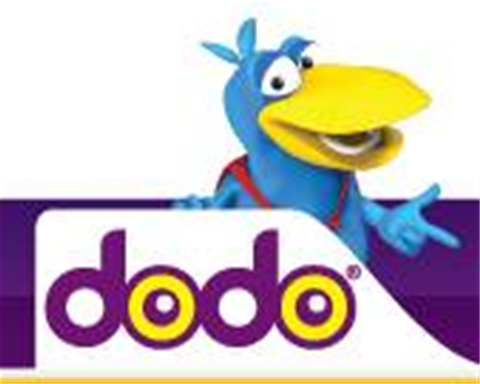Low-cost service provider Dodo has revealed plans to introduce a sub-$40 entry-level internet plan on the National Broadband Network in coming months.
The company is expected to announce its first NBN product within days, joining more than 20 access seekers currently lined up to test the network at the first eight sites in Tasmania and on the mainland.
Three mainland sites are in ramp up mode with Townsville and Brunswick expected to go live in the next month.
Though Dodo's initial plans would unlikely have a price tag attached, chief executive Larry Kestelman told iTnews he had been working with NBN Co and wholesale aggregators to keep prices low.
They would start at an entry-level service with 12/1 Mbps speeds for below $40 per month, though Kestelman was unsure of what quota would be offered for the plan.
"I see no reason why we won't be able to deliver a sub-$40 entry point," he said.
He said the company would also continue to offer plans with an unlimited quota over the network, though they would be more expensive than $39.90 per month it currently charged for ADSL2+ services.
"We'll still have to work with NBN Co to figure out the pricing but we'll definitely have an unlimited product on NBN," he said.
The entry point would be based on the $24 per month wholesale product NBN Co will sell to retail service providers from October.
It provides access to a fibre port at the user's premises, a 12/1 Mbps service as well as access an additional SIP voice port for a phone product offered at the retail service provider's discretion.
The wholesale products exclude additional charges for connectivity virtual circuit access which retail service providers will need to bear to access the network at some points of interconnect
CVC access, charged at $20 a megabit a month, had been flagged by some in the industry as the potential downfall of the NBN's price structure.
In announcing initial retail prices for Internode's NBN plans yesterday, managing director Simon Hackett called on NBN Co to revisit the price structure and offer the first 200 Mbps of CVC access free to providers.
Failing to do so would reduce a provider's ability to offer cheap prices to fibre customers at each of the 121 points of interconnect.
Some 41 of the identified points were deemed regional and expected to be expensive to reach by fibre backhaul for smaller providers.
Internode's plans were the first to air after months of initial retail prices based on no wholesale access cost to the NBN.
Internode's plans started at $59.90 for a 12/1 Mbps service with 30 GB quota and reached up to $189.95 for a 100/40 Mbps with a terabyte of quota.
Hackett yesterday defended the costs as equivalent to current ADSL2+ prices where line rental was included.
Other ISPs stay quiet
Competing providers have so far been lax to reveal what they might charge under the network.
iiNet chief regulatory officer Steve Dalby told iTnews a review of retail costs wasn't urgent during trials of the network.
"We'll have to do a complete review when we get all the cost components sorted," he said. "The trial isn't a good indicator of what our costs are going to be."
Other ISPs were contacted yesterday but didn't respond at time of writing.
Service providers would be free to determine how much CVC access they purchased to the NBN, depending on the contention ratios they wished to provide to customers.
However, the ACCC has already warned that service providers bear responsibility should users not experience reasonable speeds for NBN services.
The watchdog said elements of the established Australian Consumer Law already provided sufficient grounds for it to litigate against those who misled customers on speed claims.
"Until we all integrate into the network, there's very little point talking about contention because we still don't even know how NBN is going to do it 100 percent," Kestelman said.
"I think we'll still have to wait and see."





.png&h=142&w=230&c=1&s=1)


.jpg&h=142&w=230&c=1&s=1)



.jpg&w=100&c=1&s=0)
_(8).jpg&w=100&c=1&s=0)











